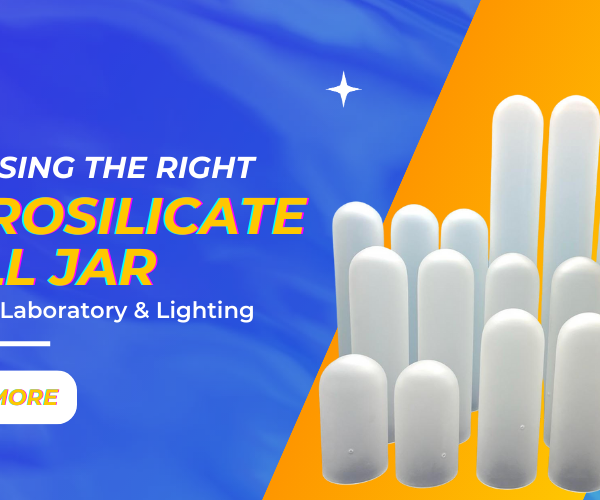- Glass Reactor System by Goel Scientific Glass Inc USA
- Introduction to Glass Reactor Systems
- Features of Glass Reactor Systems by Goel Scientific Glass Inc USA
- Advantages of Glass Reactor Systems by Goel Scientific Glass Inc USA
- Applications of Glass Reactor Systems by Goel Scientific Glass Inc USA
- Conclusion
- FAQs
Glass Reactor System by Goel Scientific Glass Inc USA

In today’s world, glass reactor systems are an indispensable part of laboratory research and industrial-scale production. Goel Scientific Glass Inc USA is one of the leading manufacturers of glass reactor systems that cater to a broad range of industries such as chemical, pharmaceutical, petrochemical, food, and biotechnology. This article will discuss in detail the various features, advantages, and applications of glass reactor systems manufactured by Goel Scientific Glass Inc USA.
Introduction to Glass Reactor Systems
A glass reactor system is a piece of laboratory equipment that is used for the synthesis of chemical compounds, mixing of chemicals, and carrying out chemical reactions. It comprises a cylindrical vessel made of high-quality borosilicate glass that is capable of withstanding high temperatures and pressure. The reactor vessel is equipped with a heating and cooling system, stirring mechanism, and other accessories that enable precise control of the reaction conditions.
Components of a Glass Reactor System
A glass reactor system comprises the following components:
- Reactor vessel
- Heating and cooling system
- Stirring mechanism
- Vacuum system
- Condenser
- Temperature sensors
- Pressure sensors
- Control system
Features of Glass Reactor Systems by Goel Scientific Glass Inc USA
Goel Scientific Glass Inc USA manufactures glass reactor systems that are equipped with several unique features that make them stand out from the rest of the market.
High-Quality Borosilicate Glass

The reactor vessels of Goel Scientific Glass Inc USA’s glass reactor systems are made of high-quality borosilicate glass that is highly resistant to chemicals, heat, and pressure. The glass used is free of impurities and has a high level of transparency, which makes it easy to monitor the reaction progress.
Modular Design
The glass reactor systems manufactured by Goel Scientific Glass Inc USA are designed in a modular fashion, which allows for easy customization and scalability. The modular design also enables easy replacement of individual components, which minimizes downtime and maintenance costs.
Precise Control of Reaction Conditions
The glass reactor systems are equipped with advanced control systems that enable precise control of various reaction parameters such as temperature, pressure, and stirring speed. The control systems also allow for data logging and real-time monitoring of the reaction progress.
Safety Features
Goel Scientific Glass Inc USA’s glass reactor systems are designed with safety in mind. The reactor vessels are equipped with safety valves that prevent overpressure and rupture of the glass vessel. The heating and cooling systems are also designed to prevent overheating and overcooling, which can cause thermal shock and breakage of the glass vessel.
Advantages of Glass Reactor Systems by Goel Scientific Glass Inc USA
The glass reactor systems manufactured by Goel Scientific Glass Inc USA offer several advantages over traditional reactors made of metal or plastic.
Chemically Inert

The borosilicate glass used in the reactor vessels is chemically inert and does not react with the chemicals being synthesized. This eliminates the risk of contamination of the reaction mixture and ensures the purity of the final product.
High-Quality Mixing
The stirring mechanism of the glass reactor system is designed to provide high-quality mixing of the reaction mixture, which ensures uniformity and reproducibility of the reaction.
Easy to Clean and Maintain
The glass reactor systems are easy to clean and maintain, as the glass vessels are highly resistant to chemical corrosion and can be easily cleaned with standard laboratory detergents.
Energy-Efficient
The heating and cooling systems of the glass reactor system are designed to be energy-efficient, which reduces the operating costs and carbon footprint of the laboratory or industrial plant.
Applications of Glass Reactor Systems by Goel Scientific Glass Inc USA
The glass reactor systems manufactured
by Goel Scientific Glass Inc USA find a wide range of applications in various industries such as:
Chemical Industry
Glass reactor systems are extensively used in the chemical industry for the synthesis of a wide range of chemicals such as organic compounds, polymers, resins, and specialty chemicals. The precise control of reaction conditions and high-quality mixing of the reaction mixture make glass reactor systems an ideal choice for chemical synthesis.
Pharmaceutical Industry
The pharmaceutical industry uses glass reactor systems for the synthesis of active pharmaceutical ingredients (APIs) and intermediates. The chemically inert nature of the borosilicate glass and the precise control of reaction conditions ensure the purity and quality of the final product.
Petrochemical Industry
The petrochemical industry uses glass reactor systems for the synthesis of specialty chemicals such as surfactants, polymers, and additives. The modular design of the glass reactor system allows for easy customization and scalability, which makes it ideal for petrochemical production.
Food Industry
The food industry uses glass reactor systems for the production of food additives, flavors, and fragrances. The high-quality mixing of the reaction mixture ensures uniformity and reproducibility of the final product.
Biotechnology Industry
The biotechnology industry uses glass reactor systems for the production of biopharmaceuticals, vaccines, and enzymes. The precise control of reaction conditions and high-quality mixing of the reaction mixture ensure the purity and quality of the final product.
Conclusion
Goel Scientific Glass Inc USA manufactures high-quality glass reactor systems that offer several advantages over traditional reactors made of metal or plastic. The chemically inert nature of the borosilicate glass, precise control of reaction conditions, and high-quality mixing of the reaction mixture make glass reactor systems an ideal choice for laboratory research and industrial-scale production.
FAQs
- What is a glass reactor system?
- What are the components of a glass reactor system?
- What are the advantages of using a glass reactor system?
- What industries use glass reactor systems?
- Why is borosilicate glass used in glass reactor systems?
A glass reactor system is a type of reaction vessel that is made of borosilicate glass and is used for various chemical and biological reactions. It consists of a vessel with an agitator, heating and cooling system, sampling ports, and other accessories.
The components of a glass reactor system include a glass vessel, an agitator or stirrer, a heating and cooling system, a temperature controller, a sampling port, a pressure gauge, and other accessories such as a reflux condenser, a vacuum pump, and a nitrogen inlet.
There are several advantages of using a glass reactor system over traditional reactors made of metal or plastic. Glass reactor systems are chemically inert and do not react with the reaction mixture, ensuring the purity and quality of the final product. The precise control of reaction conditions and high-quality mixing of the reaction mixture make glass reactor systems ideal for laboratory research and industrial-scale production. Glass reactor systems are also easy to clean and maintain, and their modular design allows for easy customization and scalability.
Glass reactor systems find a wide range of applications in various industries such as chemical, pharmaceutical, petrochemical, food, and biotechnology. They are used for the synthesis of organic compounds, polymers, resins, specialty chemicals, active pharmaceutical ingredients (APIs), intermediates, surfactants, additives, food additives, flavors, fragrances, biopharmaceuticals, vaccines, and enzymes.
Borosilicate glass is used in glass reactor systems because of its unique properties such as high chemical resistance, low thermal expansion, and high thermal shock resistance. Borosilicate glass is also transparent and allows for easy visual monitoring of the reaction.




